Japan's Government Wants Standardized Autoparts
When I stopped working for Volkswagen in 2005, they had some 400,000 parts, or “numbers” as they are called in industry parlance, in their central warehouse in Kassel. With each car, the number climbed higher. On the other hand, some 5 percent were usually out of stock. The launch of each car caused raw nerves in the parts department. When a part was faulty, dealers and production manager were at war for parts. The production managers usually won, and blamed the dealers for shoddy service.
It’s tough enough to keep the hungry beasts at assembly lines and in workshops supplied with parts during peacetime. If a volcano over Iceland blows ash, or if a huge tsunami wipes out a good deal of Japan, it turns into parts paranoia. Now, Japan’s formerly powerful METI, the Ministry of Economy, Trade and Industry, is using the Tohoku disaster to force the Japanese car industry to standardize a lot of the parts it uses.
Japanese Automakers And Unions To Government: Lower Then Yen, Or We Are Out Of Here
In an (especially for Japanese tastes) strongly worded joint statement, Toshiyuki Shiga. Chairman of Japan Automobile Manufacturers Association, and Koichiro Nishihara, President of the Confederation of Japan Automobile Workers’ Unions threw down the gauntlet to the Japanese government. Executive summary: “We are sick as hell of the high yen and we can’t take it anymore. Do something, or kiss those jobs sayonara.”
Toyota To Bring Plug-Ins To China?
The Chinese government appears to be dead-set on electrifying its car fleet. And if any government usually gets what it wants, then it’s the Chinese. Generous subsidies beckon: Some cities in China match a central government subsidy of 60,000 yuan with their own 60,000 yuan largesse. That’s 120,000 yuan, or in today’s greenbacks (forget the rumor that the yuan is pegged to the $, no more) that’s $18,515. Even more intriguing: Beijing promises to do away with its license plate lottery for EVs.
Two problems: No EVs to buy, and no charging stations.
Germans Trump Lexus In Japan. And Bloomberg Blows It Bigtime
Japan’s March 11 tsunami had more destructive effects than just washing pint-sized (ok, ok, 0.6 liter sized) kei cars to the top of Japan’s sales charts. It also resulted in considerable menboku o tsubusu (literally “breaking of face”, dishonor) for Lexus. On its home-turf Japan, Toyota’s lux-brand was outsold by doitsu (German) BMW, even by Mercedes, a brand said to be popular with the yakuza. Speaking of major menboku o tsubusu: BMW did certainly not top Toyota, as Bloomberg insinuates.
Deep Data Dive: Tsunami Washes Kei Cars To The Top Of Japanese Charts
The March 11 earthquake and tsunami didn’t just destroy more than 410,000 cars in Japan. It also totally mangled the list of top selling cars in Japan. After a two year absence, two minivehicles took the top spot of the chart. Suzuki’s WagonR mini vehicle was the best-selling new car in May, Daihatsu’s Move mini vehicle took second. The first regular car was the Honda Fit in the 3rd position. Perennial leader Toyota Prius is in the 6th position, despite an early re-start of production. Full list after the jump ….
Stranded EV? Help Is Near. Well, Not Quite ...
„When you run out of battery with your EV, no AAA will help you – except with a tow.”
This line is a favorite weapon in the low-level propaganda war between gas and electric. Now Nissan, purveyor of the Leaf, goes on the counter-attack. Nissan deployed its first roadside service vehicle equipped with a charger to assist EVs that ran out of juice.
Mazda Likely To Abandon Flat Rock, US Production
Rumors began surfacing about a month ago that Mazda was eying a complete pullout from US production, as it endures weak sales of its last American-built product, the Mazda6. Mazda had reportedly planned for 100k units of Mazda6 production at its Flat Rock plant, which it shares with Ford, before the economic crisis sent the US market tumbling. And with only a little more than 36k Mazda6s built alongside the Ford Mustang at Flat Rock last year, Mazda has little reason to maintain its joint venture, and with it, its US manufacturing presence. Now, the Nikkei [via the DetN] reports that Mazda’s pullout is more likely than ever, citing an unnamed Mazda source as saying it hoped to sell its 50% stake in the Flat Rock AutoAlliance plant to Ford as it restructures its global operations.
Babe Magnets Gone Hybrid: We Pickin Up Their Chicks In Our TOYOTA PRIUS
I’m just beginning to figure out that Twitter thing, and there it was:
“ ToyotaPR Scott Brownlee RT @YouTubeLMAO: @ToyotaPR Made this Hybrid Music Video for Toyota. http://youtu.be/8H-yUQZ9uqM
Say what?
Japanese Auto Industry: We're Baaaaack!
Fresh indications that the Japanese auto industry is getting back on is feet faster than thought. Honda and Toyota were – in numbers of cars not produced – hardest hit by the ripple-effect of the March 11 tsunami. Both originally thought they would not be back to normal before year’s end. Today, The Nikkei [sub] writes that Honda “will likely have its domestic production nearly back to normal in July, sooner than expected, as autoparts manufacturers quickly get output back on track.” Yesterday, Toyota had confirmed, that the company will be back to 90 percent in June in Japan. Nissan is also near normal and wants to increase production capacity from September.
May Sales In Japan Drop 37.8 Percent - Foreigners Save The Day
Sales of new cars, trucks and buses in Japan dropped 37.8 percent from a year earlier in May, data released by the Japan Automobile Dealers Association show. It could have been worse.
Quote Of The Day: Japan's Downgrade Raises All Ships
Amazing quote in today’s Nikkei [sub]:
“Shares in Toyota Motor Corp. gained further ground Tuesday afternoon, after Moody’s Investors Service Inc. said during the lunch break it may downgrade Japan’s sovereign debt ratings.”
Welcome to the wicked world of global economics.
Japanese Car Exports Down 67.8 Percent In April
Hit by the March 11 earthquake and tsunami, exports of Japanese motor vehicles plummeted 67.8 percent from a year earlier in April.This according to data released today by the Japan Automobile Manufacturers Association. The quake hit all companies, although not equally hard …
Japan Plans Parts Maker Bailout - Of Sorts
The Development Bank of Japan is planning a bailout found for Japan’s hard-hit auto parts industry. The parts industry took the brunt of the March 11 earthquake and tsunami, and it is parts shortages that hold up a speedy recovery of Japan’s largest industry sector. According to the Yomiuri Shimbun, the DBJ plans to raise 50 billion yen for the fund.
Post-Tsunami Trauma: Japanese Car Industry Loses More Than 600,000 Units In April
Today, Japanese automakers announced domestic and global production numbers for April. April was the first month to take the full brunt of the March 11 tsunami. For the first time, it is possible to get a clear picture of car-nage 2.0, and the carnage is gruesome. Most of Japan’s auto industry had been down for the first half of April, and came only tentatively back in the second half. At home, all major Japanese automakers were hit hard in April. Overseas production was impacted to varying degrees. On a global basis, the Japanese auto industry lost more than 600,000 units in April, or 35.7 percent of its global production in April 2010. Gory details after the jump …
Quote Of The Day: Busted! Edition
If it were up to the candidates for president on the Republican side, we would be driving foreign cars; they would have let the auto industry in America go down the tubes,
These were the words of Democratic National Committee Chair Rep. Debbie Wasserman Schultz (D-Fla.) at a breakfast put on by the Christian Acienec Monitor. But, as TheHill‘s Michael O’Brien reports, Ms Wasserman Shultz owns a 2010 Infiniti FX35 that is built by Nissan in Tochigi, Japan. And, adds O’Brien, “The car appears to be hers, since its license plate includes her initials” (it is, see picture above). The congresswoman’s response (through a spokesperson):
They can try to distract from the issue if they want. But if Republican opposition researchers are snooping around garages, they should know that if Republicans — who said that we should let the U.S. auto industry go bankrupt — had their way, they wouldn’t find a single American made car anywhere.
*Sigh*
May U.S. Sales Forecast: Cloudy In Japan, Sunny In Korea
TrueCar released its May 2011 sales forecast. At this time in the calendar, these forecasts, based on real transactional data, usually come close to reality. For May 2011, TrueCar expects new light vehicle sales in the U.S. to be 1,060,392 units, down 3.7 percent from May 2010 and down 8.3 percent from April 2011(unadjusted basis for sales days). This would be a Seasonally Adjusted Annualized Rate (SAAR) of 11.85 million new car sales, down from 13.18 million in April 2011 and only slightly up from 11.63 million in May 2010. Why the sudden reluctance?
Nikkei: Toyota Back To 90 Percent Next Month, At 100 Percent In August
Come June, Toyota “plans to bring domestic auto production back to as much as 90 percent of targets set before the March earthquake hit, thanks to faster-than-expected improvements in parts supplies,” The Nikkei [sub] writes today. At the annual results conference in Tokyo, Akio Toyoda had said Toyota Toyoda would be on its way back to normal beginning in June, with hopefully 70 percent of production reinstated in summer. This was already a two month improvement over previous plans. Two weeks later, the outlook seems to be even better. If The Nikkei heard correctly.
Introducing Toyota's Tropospheric Ozone-Concentration Simulator. Eat Your Heart Out, Bob Lutz
According to one car guy, global warming is a crock of excrement. Toyota wants to get to the bottom of it. Toyota Motor Corporation and Toyota Central R&D Labs have developed a simulator able to predict tropospheric ozone concentrations across the whole of South and East Asia.
Friend Your Toyota
Last January, Toyota’s Prez Akio Toyoda visited Salesforce.com CEO and cloud computing proselytizer extraordinaire Mark Benioff in Benioff’s sprawling compound on the Big Island of Hawaii.
206 EV Miles On A Single Charge With A SIMple Solution
“The biggest problem” that faces widespread adoption of electric vehicles, “is striking a balance between performance and price.” The man who said that, Hiroshi Shimizu, thinks he has the solution to this problem. It is not generous subsidies. It is not miracle batteries. It is a technology his company has been developing over many years: In-wheel electric motors. Shimizu’s company , “SIM-Drive Corp. a Keio University-linked venture company, on Wednesday unveiled a prototype of its SIM-LEI electric vehicle that can travel up to 333 kilometers (206 miles) on a single battery charge,” writes Japan’s Jiji Press.
Car Shortage? What Car Shortage?
With all the news about earthquakes and tsunamis, you would think that the lots of your favorite ricer retailer are bare. They aren’t. But some dealers hang on to what they have got and sell it at healthy mark-ups, assuming that the pipeline will run dry. Both Honda and Nissan are unhappy with this perception and tell their dealers to move the metal. “Honda told its U.S. dealers Friday that July vehicle deliveries would increase by 11% from June levels and accelerate in August as the auto maker ramps up production after the March 11 earthquake in Japan,” says The Nikkei [sub].
Kei Car Co-Ops
How do you make money with small cars? You make it up with volume. The Japanese market for the very Japanese minivehicles, or kei cars, is shrinking. So what do manufacturers do? They circle the diminutive wagons and forge joint ventures.
Japanese Parts Paralysis: Toyota Europe Up, Honda Brazil Down
The ripple effects of the March 11 tsunami keep bouncing around the globe. The is good news and bad news. (Or bad news and good news, depending on the side you are on.)
Study Says: Japan Troubles And Sub-Prime Consumers Golden Opportunity For U.S. Car Industry
A study of A.T. Kearney Management Consultants (for what such a study is worth) foresees that 13.2 million cars will be sold in the U.S. this year. It could be more, but the consultants reckon that “in the aftermath of the earthquake and tsunami, parts shortages will impact 2011 U.S. new vehicle sales by 200,000 units.” In the disaster, A.T. Kearney sees a golden opportunity: “Given what we know about production downtime, in 2011 we see 328,000 U.S. customers of the affected brands up for grabs, and more if the time to wait for a particular brand begins to extend.”
Japanese Parts Paralysis: And Now, The Great Chip Famine
Automakers in Japan are slowly crawling back to normal. However, they are in for another after shock, and this one could be quite serious: Yasushi Akao, President of chipmaker Renesas said today that supplies of microcontrollers from his company will be in serious trouble come June. According to The Nikkei [sub], “stocks are expected to run out next month as operations at the firm’s Naka plant in Ibaraki Prefecture have been suspended since the Great East Japan Earthquake on March 11.” Renesas microcontrollers are the chips of choice of many car companies who use them in their on-board electronics. Toyota is known to be a large customer of Renesas.
With Nissan's Carlos Ghosn Near Fukushima. A Glowing Report
“Due to our proximity to the nuclear power plant in Fukushima, in the beginning, some suppliers and some contractors had problems coming to the plant because there was that uncertainty of radiation,” says Nissan CEO Carlos Ghosn today, standing in front of the final assembly station of Nissan V6 engines made in their plant in Iwaki. That plant indeed is only some 60 miles from the Fukushima power plant, and that’s where we are today.
Yet Another Tsunami Victim: Used Car Sales In Japan
Logic makes you think that used cars sales would skyrocket at the moment in Japan. The auto industry barely has started producing and will not be back to normal before the end of the year. Hundreds of thousands of cars have been destroyed. In Japan’s Miyagi Prefecture alone, 146,000 cars are estimated to have been severely damaged or destroyed, 10 percent of the 1,540,000 cars registered in the Prefecture. Used cars should be flying off the lots. But the opposite is true.
One Country's Misfortune Is Another Country's Market Share. Don't Bank On It
“If you have no cars, you will lose market share,” said double-CEO Carlos Ghosn at last week’s annual results conference of Nissan. He said openly what other carmakers on the other side of the Pacific only dare to whisper into the ears of sympathetic reporters, or via analysts at banks and brokerages: The March 11 tsunami will cost Japanese makers big chunks of market share. The questions is: For how long?
Toyota Launches The Car Of The Future, The Prius Alpha April
In a normal world, an automaker wants to time the announcement of a new car just right: In time to build anticipation. Not too early, because that would hurt sales of last year’s models. In Japan, they keep things simple and have the press event the day the car goes on sale. Today, I was at a press event in Tokyo that celebrated the Prius Alpha, a bigger, roomier minivanish Prius that can seat 7. If you’d order it today, you would get your car in a distant future, in April 2012. No typo. 11 months from now. Next year.
Welcome to the new world of post-tsunami car launches.
Carlos Ghosn: The EV Will Set You Free (It's The Battery, Stupid)
Further on today’s results conference at Nissan, I could regale (or most likely bore) you with what you will hear from just about any Japanese carmaker, and possibly from non-Japanese carmakers as well: Last year was a good year, the March 11 tsunami makes this year a challenging year, but what will not kill us makes us stronger, and in ancient China, crisis and opportunity were one and the same.
Now this is Nissan and Carlos Ghosn who has bet a farm in France and one in Japan on the future of the electric car. Ghosn made a few points today that are well worth noting. He talked about nukes, CO2, blackouts – and batteries.
Breaking: Nissan Surprises With Strong Profits And Speedy Recovery. Will Own Zero Emission Market Until 2015
Nissan CEO Carlos Ghosn treated reporters to his trademark Gallic body language and quick-witted repartees during the presentation of the fiscal year 2010 results today at Nissan’s swank waterfront headquarters in Yokohama. Ghosn delighted stockholders and analysts with the news that Japan’s #2 automaker made a net profit of 319.2 billion yen (US $3.72 billion) on net revenues of 8.7731 trillion yen (US $102.37 billion). Operating profit was 537.5 billion yen (US $6.27 billion). Ghosn created much happiness by announcing that the last quarter of the fiscal year, which ended on March 31, resulted in an operating profit of 88.6 billion yen ($1.1 billion), also exceeding expectations.
Rotating Power Rationing Plan Approved In Japan
Something else was announced today at the Toyota results conference, and lost on most in the packed room. A remark by CFO Satoshi Ozawa that the long discussed rotating power rationing plan is now a done deal.
At The Toyota Financial Results Conference: We Doubled Our Profit, And The Yen Is Killing Us
When I arrived at Toyota’s downtown Tokyo basement conference room, I bumped into Toyota spokesman Paul Nolasco, who was in the grips of stage fright. Annual results conferences with the world watching can do that to a spokesman. Trying to cheer Paul up in my charming way, I said: “Come on Paul. This one will be great. It’s the next ones that will be rotten as hell.” Paul gave me a pained look.
When I left an hour and a half later, I had changed my mind. Toyota will survive this crisis just like it survived the previous two: Stronger. Not unscathed, but not as badly affected as some officially fear and silently hope. What may not survive are Japanese jobs.
Breaking: Toyota's Profit Nearly Doubles to $5 Billion – Company Ready For Rough Road Ahead – Might Pack Up And Leave Japan If Yen Gets Stronger
Toyota Inaugurates Gas Station
A bevy of industry figures and politicos congregated yesterday in Torrance, CA, to celebrate the grand opening of a new gas station. But it wasn’t just any new gas station …
Japanese Parts Paralysis: The Shiny Paint Is Leaving The Building
Remember the first auto part that had been in short supply after the March 11 tsunami? It was car paint. Certain car paint that uses a shiny pigment called Xirallic, to be exact. That will also be one of the first Japanese parts that will move elsewhere as a result of the disaster. Germany’s Merck said today it will shift production of Xirallic pigments from Japan to Germany.
Suzuki Profits Rocket Up, Future Unsure
‘Tis the season when Japanese companies publish annual results. They all work on a fiscal year that runs from April 1 through March 31. Then, they need a good month to count the beans, to be ready in mid May. Suzuki was first to announce, and the announcement was good:
What's Wrong With This Picture: The Rugged EV Lifestyle Edition
Of all the barriers standing in the way of commercial success for electric cars, the “image issue” is perhaps one of the least understood. Most EV firms have embraced the distinctively Western “green consumption” trend, in which a kind of environmental asceticism drives consumer values of downsizing and ultimately self-denial. But making a conscious choice to not use gasoline and accepting whatever the market happens to offer is not a phenomenon that automakers can expect to sustain itself. If they ever want to achieve mass acceptance, EVs need an image context that goes beyond graywater recycling, “freeganism” and other highly conscious but ultimately self-denying lifestyle choices.
Racing is one obvious way to broaden EV appeal, as it highlights the positive performance aspects of EV drivetrains, but sadly no major OEM will commit to an EV racing series. Besides, racing hardly builds on the existing (if limited) green appeal of EVs. Enter the EV as disaster response vehicle. The NYT has a fantastic story about the use of EVs in rescue efforts after the Japanese quake/tsunami, when gas was largely unavailable. The story proves that EVs, far from being mere lifestyle accessories, can be hugely useful in the right circumstances. And because so many green lifestyle choices stem from a perspective of apocalyptic expectation, this story both broadens and builds on the EV’s existing appeal. Most importantly of all, pictures like the one above will do more to banish the limp-wristed, “anti-luxury” image that curses EVs than just about anything else. Just as SUV buyers would swell with pride seeing an ad image of their Explorer in off-road conditions they would never visit themselves, the image of EVs running first-responder missions in a quake-torn Japan could be of lasting significance.
Future Prius Could Power Your House – In A Pinch
If everything goes according to what The Nikkei [sub] has heard on the grapevine sake circuit, Toyota will deliver a plug-in Prius hybrid by 2014. A plug-in with an interesting twist …
Official: CNG Powered Civic To Be Rolled-Out Nationwide
When the new Honda Civic GX will be available in the U.S., it will come with an option that allows you to bypass all gas stations and to fuel at home. No, it won’t be electric. It will be powered by compressed natural gas ( CNG).
Closure Of Japanese Nuclear Plant Could Affect Toyota, Mitsubishi and Suzuki
Yesterday, Friday, the Japanese government ordered requested the shutdown of the Hamaoka nuclear power plant, 117 kilometers (73 miles) southwest of Tokyo. No accident had occurred, the measure was a precaution. The plant provided power to the Aichi prefecture where Toyota and many other industries are located.
According to The Nikkei [sub], “chronic power supply troubles threaten Toyota Motor Corp. and the other manufacturers that call the region home. At this point, Toyota has no idea what effect shutting down Hamaoka will have on its operations, a person familiar with the automaker said Friday.”
Volkswagen: Empire Under Construction
At yesterday’s annual shareholder meeting, Volkswagen had nothing but good news: A record year 2010, a record first quarter 2011, a company that is rolling in cash. Instead of thanking management for the good numbers and the (smaller than expected) dividend, ingrate shareholders bawled Winterkorn out.
Japanese Parts Paralysis Likely To Cause Steep Losses
Japan’s carmakers are slowly returning back to normal, hobbled only by unsure supply of parts and sometimes power. It will be slow going and full of surprises. One thing is for sure: The March 11 tsunami will have an ugly effect on carmakers’ books. Combined losses for the Japan’s carmakers and suppliers could “the biggest ever,” surpassing those during 2008 to 2009 financial crisis, Noriyuki Matsushima, an analyst in Tokyo at Citigroup Inc., told Bloomberg.
Japanese New Car Sales Plummet 51 Percent In April
As predicted a month ago, the full brunt of the March 11 earthquake and tsunami hit Japan’s auto industry in April. Sales of new cars, trucks and buses crashed 51 percent from April a year earlier. Most of Japan’s auto industry was closed in the first half of April and operated at reduced capacity in the second half of the month.
Toyota Blasts Brazilian Blogger
The Brazilian autoblogosphere is up in arms because of an alleged censoring attempt by Toyota do Brasil. A month after the Brazilian blog Notícias Automotivas had run a piece on the upcoming Toyota Corolla S, they received a letter from Toyota do Brasil’s Legal Department. The Corolla S looks like not much more than a customized Corolla with red stitching on faux racing seats. The letter, dated April 29, 2011, looks scary.
We have received what we believe is a faithful translation of the letter from Brazilian Portuguese Legalese to English. The letter demands, within 24 hours of receipt, the takedown of the whole story, plus something unheard of:
After The Monster Tsunami, The Super Tornado
Mother Nature appears to have issues with the auto industry. First, a once in a millennium tsunami crippled Japanese automakers and suppliers for most of the year. Now, the most powerful long-track tornado in US history hit automakers in Alabama.
Subaru Says Sayonara to Making Kei Cars
For nearly a year, readers of TTAC have known what’s coming now. As reported back when, Fuji Heavy’s Subaru will end its 54-year history of producing minivehicles in February next year.
Japanese Parts Paralysis: Worst Situation Since The War
“This is the worst situation we’ve faced since the war,” a source close to Toyota told the Yomiuri Shimbun. The Japanese car industry is facing post-war-like shortages when it comes to auto parts. Toyota is short 150 parts positions, which can be anything from a bolt to a complete dashboard.
Dealerships are empty – of cars. Test drive cars do double duty as display vehicles. “We get a lot of customers coming in, but we don’t have cars to sell them,” a salesperson told the Tokyo paper.
Parts Paralysis Hits Ford
Shortage of parts from Japan after the March 11 earthquake and tsunami makes Ford idle plants all over the world:
March Carnage In Japan
Toyota wasn’t the only Japanese manufacturer getting hit by the March 11 earthquake and tsunami. Toyota isn’t even the hardest hit – at least not in percentages.
Japanese output of the eight major Japanese carmakers’ plunged 57.5 percent in March from a year earlier to 387,567 units. That is some 465,000 units less than planned, The Nikkei [sub] reports. Here are the March Japan production numbers for the individual automakers:
Toyota Production Data Hit Hard in March
Toyota published production and sales results for the 2010 fiscal year. The fiscal is a Japanese oddity. It starts on April 1 and goes through March 31. Financial data will be announced on May 11.
Nothing highly unusual for the full fiscal. Japan is down, overseas is up.
What's Wrong With This Picture: Japan's Production Problem Edition
The Detroit Free Press reports, almost giddily, that GM will almost certainly replace Toyota as the world’s largest automaker by volume this year, as tsunami-related production problems will continue to plague the Japanese automaker. The graph above, by IHS Global Insight [via AutoObserver], shows that the impacts of the tsunami will continue to be felt well into next year, and that Japanese production will likely fall permanently by around 15%. Toyota’s full-year production could be cut by around 20%, possibly bumping the automaker to the third position in the global volume race, after GM and VW.
TEPCO Goes Into Hiding
Advertising on the side of your corporate fleet is a great idea. Especially if you are an electric company and you have electric cars.
Japan’s TEPCO just changed its mind.
"Enormous Delay In Delivery:" Toyota Production Back To Normal - By The End of The Year
In a surprise press conference that had not been confirmed as late as last night, Toyota’s president Akio Toyoda laid out plans for Toyota getting back to normal. Bottom line: Toyota hopes to be back to normal by the end of the year.
“To all the customers who made the decision to buy a vehicle made by us, I sincerely apologize for the enormous delay in delivery,” Akio Toyoda said.
Volkswagen And Isuzu Are At It Again
When the first rumors of a possible tie-up between Volkswagen and Isuzu were floating around, they were vigorously denied by Isuzu, and meekly (“currently not on the agenda”) denied by Volkswagen. Here they are again. The Nikkei [sub] writes without the usual qualifications that „Isuzu Motors Ltd. and Volkswagen AG have begun negotiating a tie-up involving the mutual supply of truck engines and related technologies, a move that could create a formidable force in emerging markets.”
According to the report, if that engine deal progresses well, “they will also consider acquiring stakes in each other.”
One Of These Is The World Champion Of Cars
After Nissan’s Leaf drove away with the European Car Of The Year title and the Volt snagged the American Car Of The Year title, what else was there to win? The WCOTY, of course. The champion of champions, the World Car Of The Year. And the winner is …
Japanese Parts Paralysis: Nissan's Iwaki Engine Plant Back On-line
Nissan’s Iwaki engine plant is back on line, as this video from Nissan’s in-house channel attests. The plant, located some 35 miles away from the stricken Fukushima power plant, was severely damaged by the quake and had been off-line ever since March 11.
Japanese Parts Paralysis: Toyota Announces More Shutdowns In North America And China
During an intimate round table in Shanghai, usually well informed reporters were harping on the influence of radiation on Toyota sales. I expected the heads of communication of Toyota worldwide and Toyota China to blurt out: “Radiation? What impacts sales is the fact that we don’t have any cars to sell.” But they kept their cool in the face of a hot topic.
After a month-long quake-induced hiatus, Toyota restarted production in all Japanese factories on Monday. In the meantime, the shockwaves of the tsunami ripple through the supply lines.
Japanese Parts Paralysis: Honda Extends Half Steam Production Into May
Honda sources the vast majority of parts and materials needed for North American production in North America. “However, for global efficiency, a few critical parts continue to be supplied from Japan,” says Honda in a statement. Honda restarted production of component parts for North American plants Monday, April 4 at several Honda plants in Japan. However, those need their own parts and supplies. Therefore, Honda’s component production in Japan continues to run at approximately 50 percent of the original production plan.
This of course impacts North American production.
Computer Glitch Turns Nissan Leaf Into Non-Starter
Some of Nissan’s Leaf cars were beset by the opposite of the alleged sudden unintended acceleration: Sudden unintended arrest. Once started and turned off, the Leafs refused to start again. Which of course would turn the Leaf into a PR embarrassment: Who wants the first serious mass market EV to be a non-starter? After having received complaints both in Japan and the U.S., Nissan decided to do something about it.



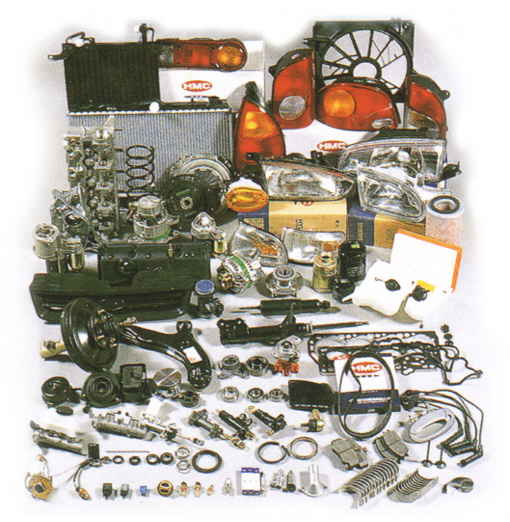











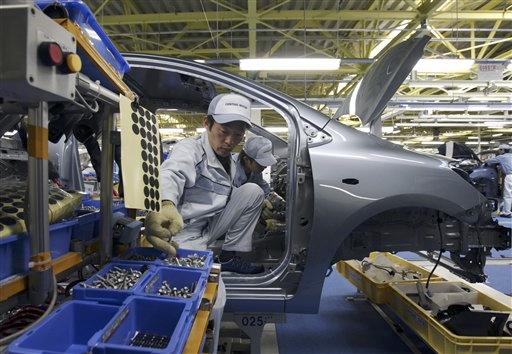

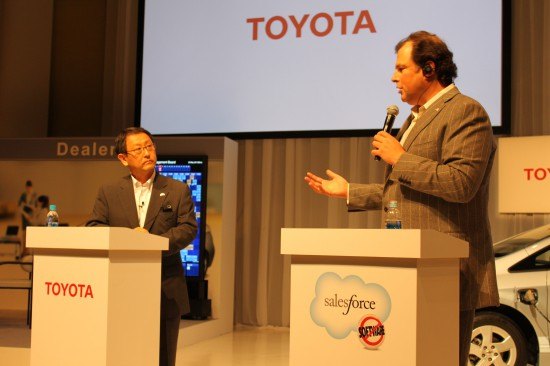

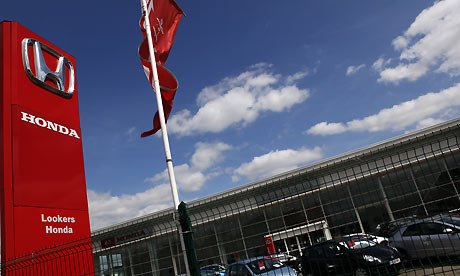
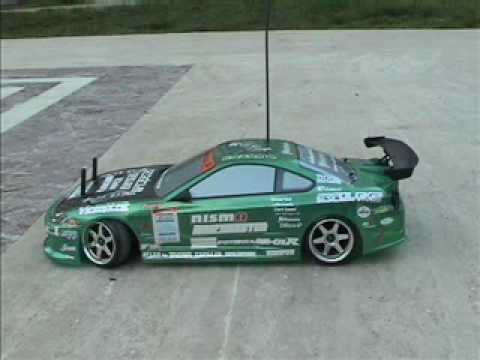


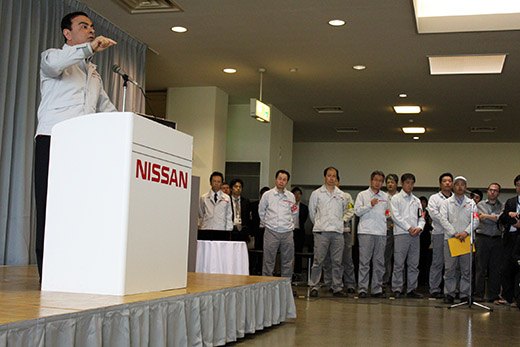
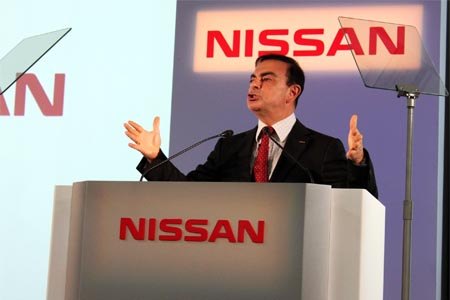



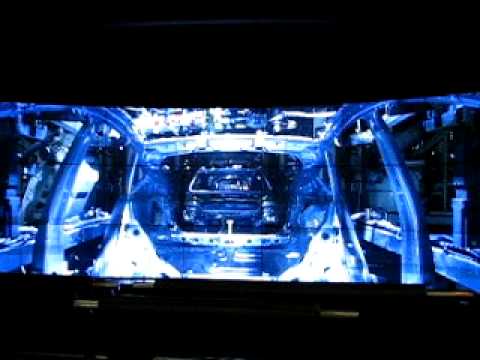
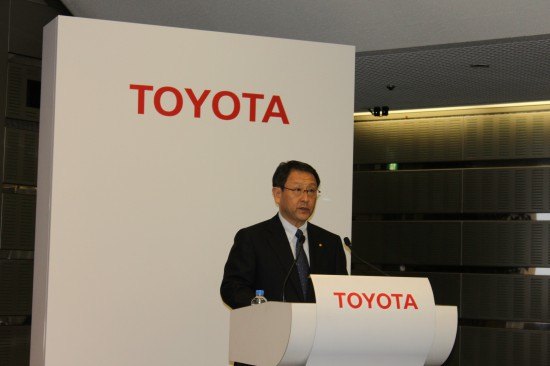
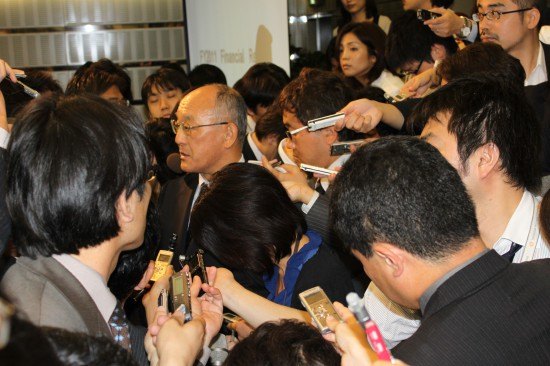
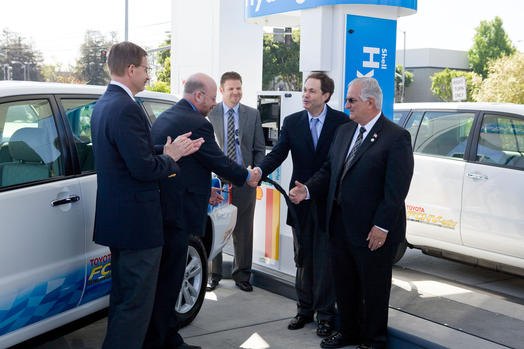
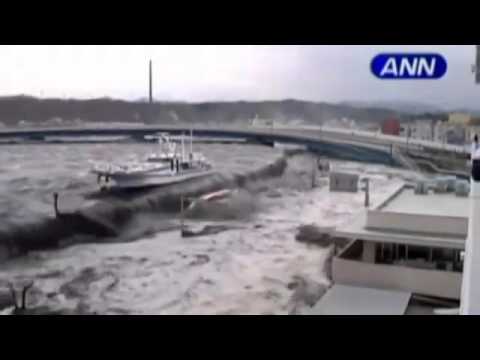
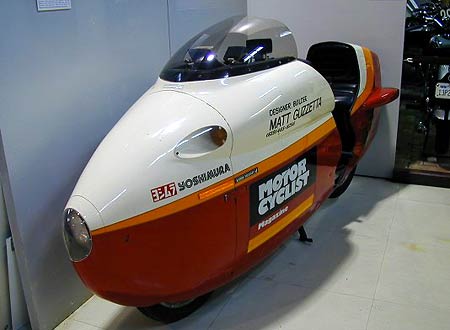

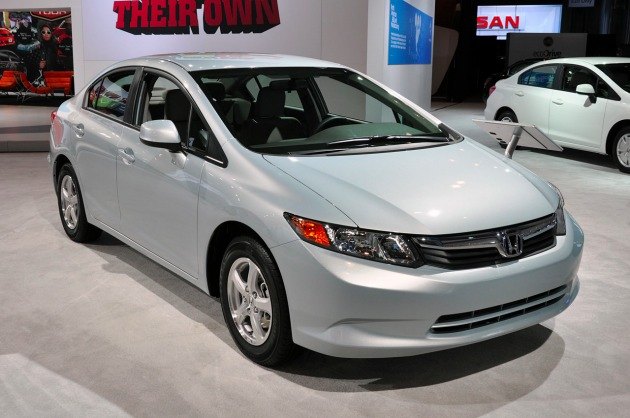
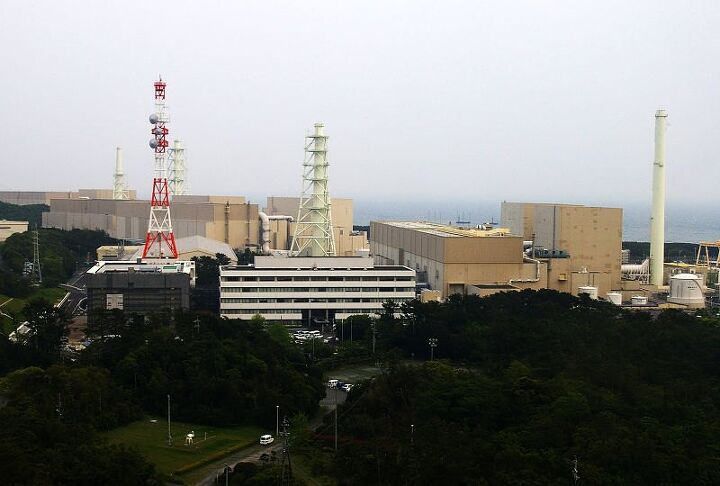

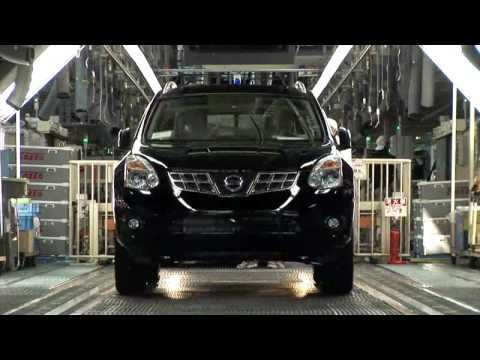
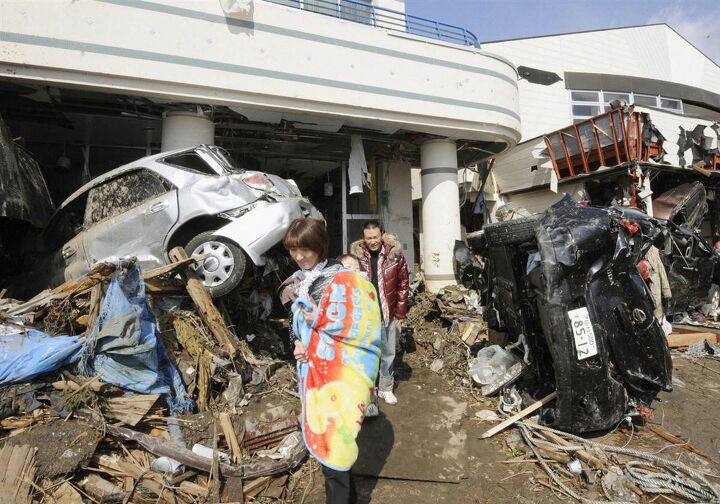


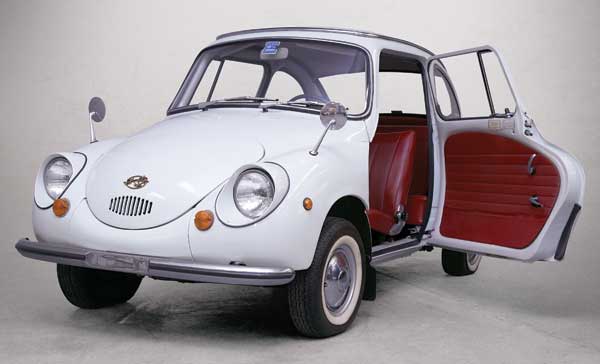

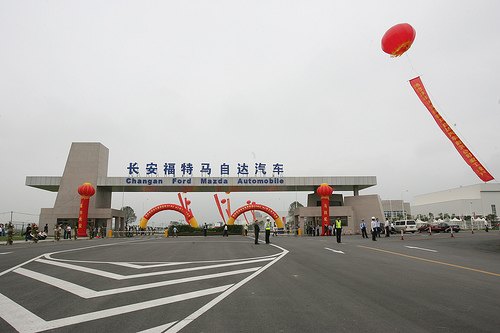



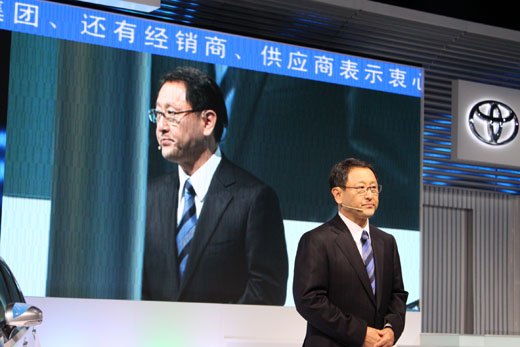


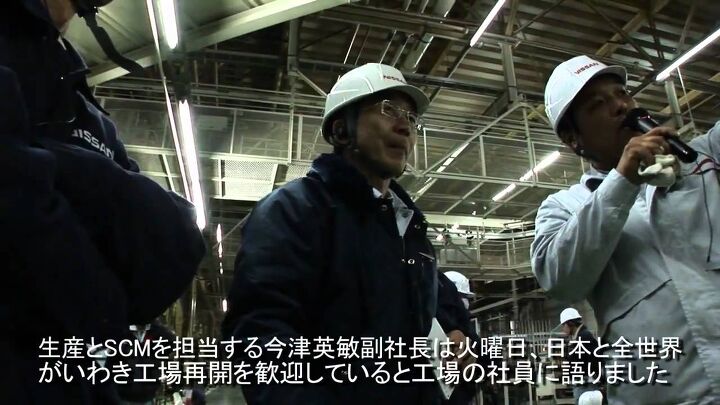

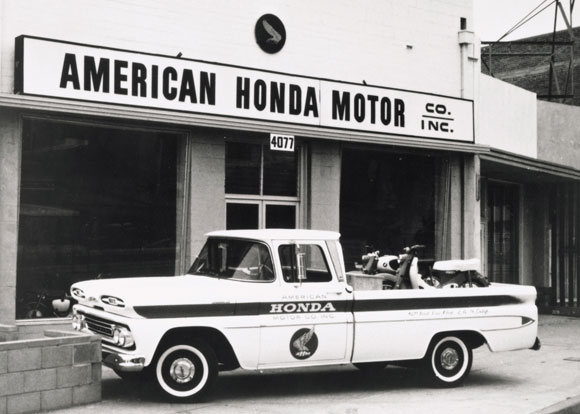
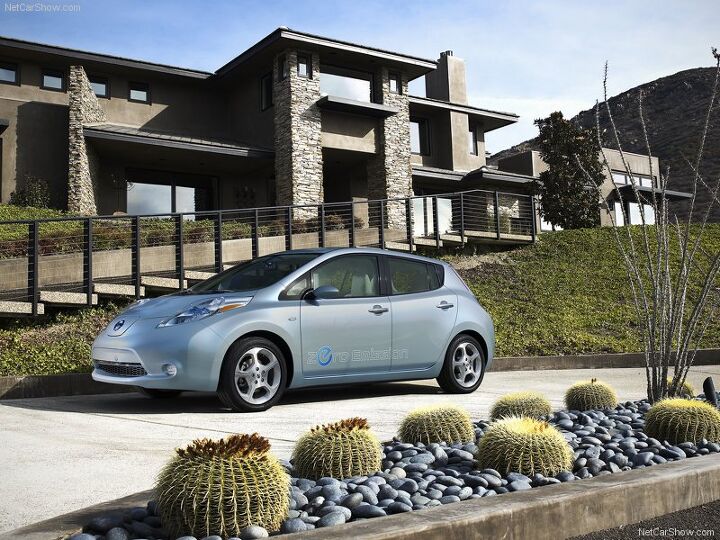












Recent Comments